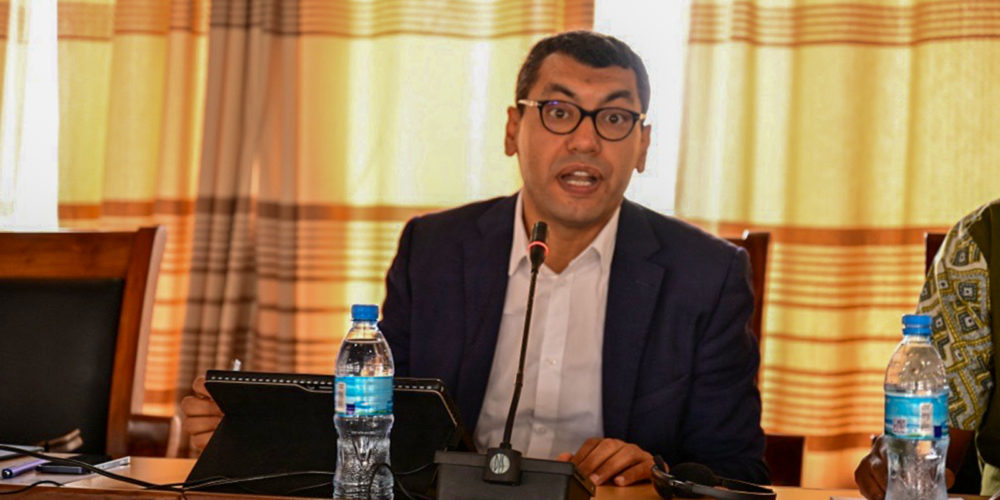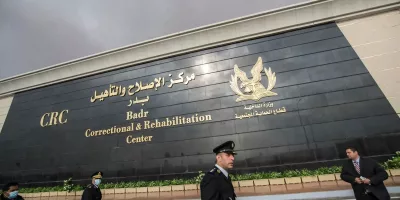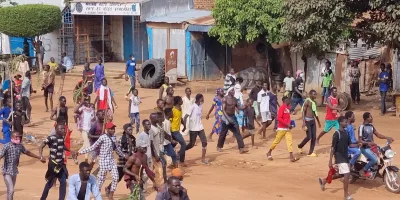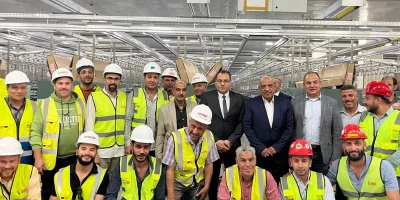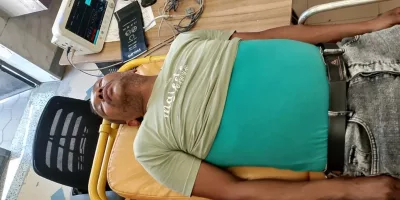News briefing
By: Committee for Justice
Geneva: October 24, 2023
The Executive Director of the Committee for Justice, Ahmed Mefreh, affirmed that during nearly three weeks since the beginning of the presidential elections process in Egypt, “mass repression” accompanying the process has been documented.
This statement was made by Mefreh during the event organized by the Committee for Justice in collaboration with other human rights organizations, on the sidelines of the 77th session of the African Commission on Human and Peoples’ Rights, regarding the Egyptian election process within the current socio-political landscape.
The Executive Director of the Committee for Justice explained that normally, when elections are on the horizon, government entities work to stabilize the situation and assist in preparing for elections in a favorable environment. Unfortunately, this has not been the case in Egypt.
Administrative Violations:
Mefreh pointed out the existence of two main types of violations documented at the beginning of the elections process in Egypt. The first is administrative violations, where many potential opposition candidates to the current President Sisi faced security harassment and intimidation. Hundreds of supporters of the candidate Ahmed Tantawi and the potential candidate Gameela Ismail were prevented from endorsing their campaigns, leading to Gameela Ismail’s withdrawal. Various forms of harassment, intimidation, and physical assaults were encountered in an attempt to halt the collection of endorsements.
Mefreh added that citizens were often prevented from accessing authorities to file complaints about the violations they experienced. This repression was not limited to Egypt alone; Egyptian expatriates in countries like Saudi Arabia and Kuwait faced difficulties as consulates were closed during official working hours to prevent the endorsement of opposition candidates. Reports also indicated the use of thugs, which Egyptian expatriates condemned.
Violations Against Citizens:
The second type of violations is violations against citizens. The Executive Director of the Committee for Justice mentioned that 168 new detainees were interrogated before the Supreme State Security Prosecution in Cairo. A much larger number were arrested in different governorates, tried in various cases, and then imprisoned.
Mefreh added that “about 110 individuals have been arrested in the past three days alone, and the violations against them ranged from enforced disappearance to arrest. Some of them faced assault during their arrest, as seen in the recent events in Tahrir Square during the pro-Palestine demonstrations.”
Mefreh also drew attention to the announcement by the potential presidential candidate Ahmed Tantawi that the Egyptian authorities had arrested around 128 members of his electoral campaign and held them pending four cases throughout the days leading up to his withdrawal. Additionally, 14 teachers were arrested for protesting in front of the Ministry of Education regarding employment issues.
Regarding deaths in detention centers, Mefreh mentioned that the political detainees Alaa Fatahallah Abu Hikal and Kamel Shedid Shahin had died in a prison in the Sharqia Governorate. Concerning torture, Mefreh highlighted the case of the detainee Omar Mohamed Ali in the infamous Badr prison, where he started a hunger strike due to medical neglect and reported being subjected to torture. He also announced his intention to commit suicide on several occasions, according to his family. Similar violations were reported by other detainees in the same prison and in other facilities.
International Law and Standards for Fair Elections:
In her address, Eva Nudd, the legal advisor for the Danish human rights organization Dignity, pointed to elections in several African countries such as Sierra Leone, Liberia (heading for a runoff next month), Zimbabwe, and others. She emphasized that many of these elections were not considered free and fair but rather described as elections marked by significant government interference, intimidation of voters and opposition leaders, and human rights violations, including arbitrary arrests, sexual and gender-based violence, torture, mistreatment, and enforced disappearances.
Nudd clarified that international law provides standards for what constitutes free and fair elections, highlighting the need for such elections to reflect the will of the people and allow individuals to exercise various rights freely, including the freedom of opinion, expression, information, and assembly, among others.
The Situation in Egypt Falls Short of Fair Election Standards:
Nudd also stated, “Unfortunately, the current situation in Egypt and the climate of the electoral campaign for the highest office in the country do not meet the standards of free and fair elections, in which President Sisi is expected to win another term. Many opposition candidates withdrew, and many of them faced harassment and intimidation.”
The legal advisor for Dignity further added that the space for civil society, where non-governmental organizations can provide voices to counter the government’s discourse, has diminished. Many organizations have been forced to operate outside Egypt or seek asylum in other countries, and independent voices have been silenced due to arbitrary arrests and enforced disappearances. Many individuals are languishing in prisons for extended periods, where they face torture and other human rights violations.
Nudd highlighted that the Egyptian government has consistently been criticized for its failure to comply with its human rights obligations. The United Nations’ Anti-Torture Committee has noted the widespread use of torture in Egypt, and local criminal law falls short of international standards, resulting in the failure of the legal framework in Egypt to prevent all forms of torture.
Call for Continued Evidence Collection:
Nudd concluded her speech by emphasizing the importance of ensuring accountability in an environment that does not readily allow for genuine dialogue and effective investigations. She encouraged civil society organizations to continue collecting evidence, identifying victims, as well as patterns of torture and mistreatment, as part of a broader effort to promote a policy of justice within regional arenas, United Nations mechanisms, or countries that allow for international justice trials.
The Need for Mechanisms to Support Human Rights Defenders in Africa:
Joseph Bikanda, Coordinator of Pan-African Defenders, emphasized the importance of working to support Egyptian civil society, particularly human rights organizations, and advocating for the lifting of restrictions on civil society. Bikanda stressed the necessity for African mechanisms to take action in supporting and assisting human rights defenders in Egypt, warning that without such proactive measures, the situation is likely to remain unchanged.
It’s worth noting that the event, which took place on Tuesday, October 24th, at 9 AM GMT in the at the Arusha International Conference Centre in Tanzania, was jointly organized by the Committee for Justice, Dignity Organization, DefendDefenders, AfricanDefenders, and the Cairo Institute for Human Rights.

